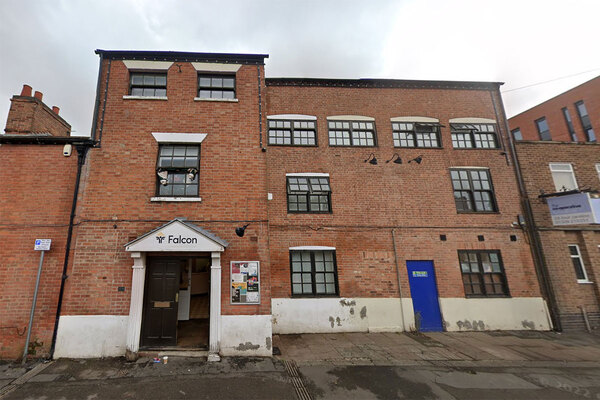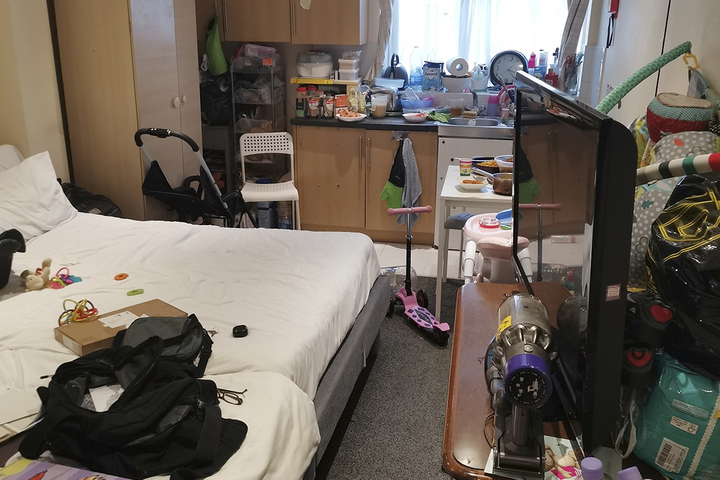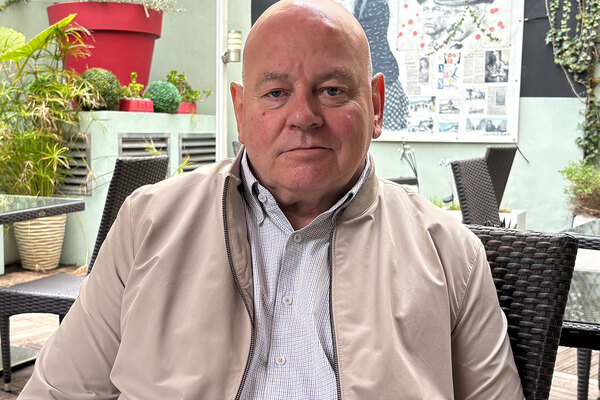Temporary accommodation spending crisis could be the ‘end of local government’, council leaders warn
A surge in spending on temporary accommodation could spell the “end of local government”, council leaders have warned.

More than 50 local leaders from across the political spectrum met to discuss the “national crisis” of the cost of temporary accommodation at an emergency meeting in Westminster yesterday.
In his opening speech, Liberal Democrat councillor Stephen Holt, leader of Eastbourne Borough Council in East Sussex, revealed that 49p in every £1 collected by the council is now being spent on temporary accommodation.
Eastbourne is set to spend nearly £5m on this provision this year, up from £1.4m in 2018-19, he said.
“Despite our efforts,” he told the meeting, “more and more of our residents are presenting as homeless… They rely on the safety net that we and our partners provide. My greatest concern is that safety net is going to fail.”
Michael Jones, Labour leader of Crawley Borough Council, said that five years ago, temporary accommodation was not a major issue for his town. In that time, however, the net cost to the council has risen from £262,000 to over £5m this year.
He said: “I don’t think it is overdramatic, given the pressures facing councils, to tell the government that they are presiding over the end of local government if they fail to take the urgent action needed to finance it properly.”
A statutory minimum provision of local services, he warned, “is a bleak outlook”.
It is also “the age-old fear fulfilled” that local government “merely becomes local administration, unresponsive to the specific needs of our communities we serve”.
Mr Jones added: “That future is not yet here, but it is coming unless the government does what is needed.”
Conservative councillor Stephanie Chambers, portfolio holder for housing and planning at Gloucester City Council, said her local authority spent £364,000 on temporary accommodation last year, but this year the bill had tripled to £1.19m.
The public has no idea how “horrendous it is for homeless families and people are too ashamed to speak out”, said Ms Chambers. “I cannot reiterate enough the need for more housing.”
The councillors urged government to uprate the housing benefit subsidy cap for temporary accommodation placements. This is the amount councils can claim back from central government on temporary accommodation, a figure that has been frozen since 2011.
Jasmine Basran, head of policy and campaigns at homelessness charity Crisis, said the total number of homeless households could rise from 242,000 currently to 300,000 by 2041, without government intervention.
“Far too often, the quality of temporary accommodation is poor,” she added, urging ministers to look at improving standards.
The Treasury and the Department for Levelling Up, Housing and Communities (DLUHC) did not attend the meeting on Tuesday, but did offer to attend a roundtable conversation with council leaders.
In the Autumn Statement, chancellor Jeremy Hunt raised the Local Housing Allowance to cover the cheapest third of market rents. The change will take effect in April.
But Mr Holt said the uplift was welcome but it “fell a long, long way short of what we need”.
Earlier this week, 44 Conservative MPs called for prime minister Rishi Sunak to provide emergency funding for councils.
It comes as several councils issued Section 114 notices, effectively declaring bankruptcy, last year, including Nottingham and Birmingham.
The latest government data shows that English councils’ spending on temporary accommodation rose by 9% last year to hit £1.7bn.
A DLUHC spokesperson said: “We recognise councils are facing challenges and that is why we have announced a £64bn funding package – an above-inflation increase at an average of 6.5% – to ensure they can continue making a difference, alongside our combined efforts to level up.
“We are committed to reducing the need for temporary accommodation by preventing homelessness before it occurs in the first place, and we are providing councils with £1bn through the Homelessness Prevention Grant over three years.
“Councils are ultimately responsible for their own finances, but we remain ready to talk to any concerned about its financial position.”
Sign up for our homelessness bulletin
Already have an account? Click here to manage your newsletters











